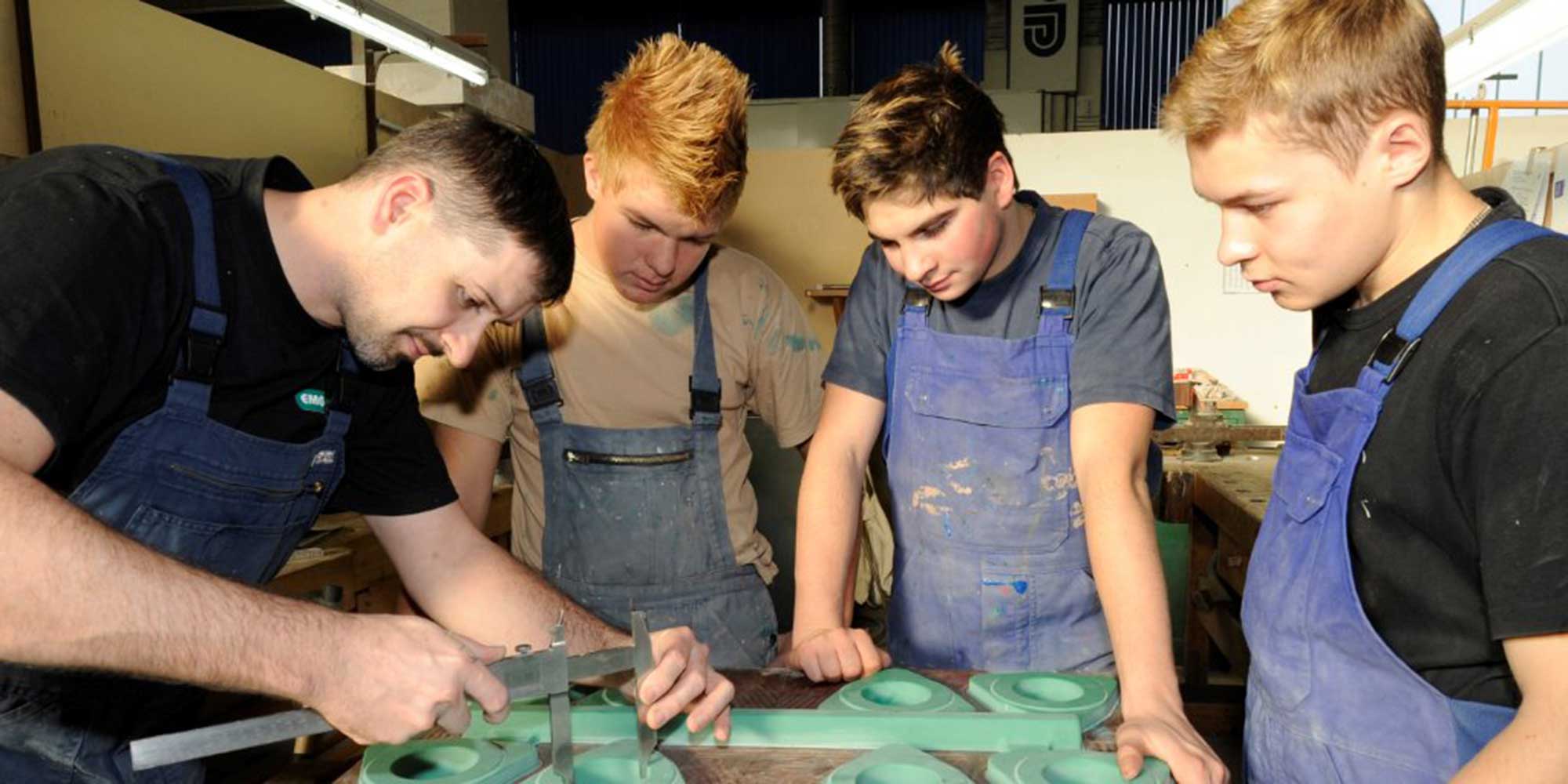


We offer young men and women high-quality, in-depth training courses for the following vocations:
As a machine fitter you are responsible as the 'master' of machines and production systems for their flawless functioning and a smooth-running production process.
After completion of the assembly and testing tasks, you induct your colleagues into the correct use of the machines and check adherence to all levels and requirements at regular intervals. You collaborate with other specialists, e.g. electronics technicians, in order to spot any faults quickly and ensure that they are speedily rectified. In doing all this work you keep the costs accruing for test equipment, parts and required materials in check and schedule all stages of the work.
Training duration: 3 1/2 years
Vocational college: Altötting
As an electronics technician specialising in production engineering, you monitor the complete power supply of the business, including operating facilities and automated building systems.
Your range of duties includes regular maintenance, including the replacement of defective parts, carrying out modernisation work and the upkeep of the fall-back systems. You induct your colleagues in the use of the electronic systems and point out the statutory accident prevention regulations. In the event of any fault, you demonstrate your capabilities through effective immediate measures that you conceive with help of the circuit diagrams and manufacturer's specifications and thus avoid any costly machine downtime. Another integral part of your work is the laying and monitoring of control systems for transferring information by computer or telephone.
Training duration: 3 1/2 years
Vocational college: Altötting
Industrial managers manage the business processes in production companies.
From materials procurement and checking of suppliers' quotations across all stages of production all the way to staffing costs, they create a financially transparent and efficient cost framework that makes it possible for their company to always keep its nose in front in the competitive marketplace. They create parts lists and work process plans that guarantee a perfect flow without inefficiencies or downtime and that are regularly reviewed for opportunities to optimise them taking into account experience gained.
Training duration: 3 years
Vocational college: Mühldorf a. Inn
Model makers make models for creating the cast mould from hard wood, plastic or metal by turning, drilling, filing and milling – by hand or using computer-controlled machines.
They maintain the models and modelling facilities and make mould accessories such as flasks, templates and pattern plates. Taking into account the casting material and the wide differences in shrinkage during cooling, the model maker calculates the model's exact dimensions, which can vary from those of the finished part. For the model maker too it is important to keep the costs for the model down by using the material best suited to the production process and by working in a time-saving way.
Training duration: 3 1/2 years
Vocational college: Wasserburg am Inn
Metal cutting machinists make precision metal parts for technical products of every kind. These may be wheel hubs, cogwheels or engine and turbine parts.
They set up turning, milling and grinding machines and modify CNC machine programmes for them. They then clamp metal parts and tools in machines, align them and set the work process going. They check that dimensions and surface quality of the pieces being made conform to the specifications. In the event of any fault, they use test procedures to find and rectify the problem. In addition, they take on maintenance and inspection tasks on the machines.
Training duration: 3 1/2 years
Vocational college: Mühldorf a. Inn/München
Utilising models for the respective machine parts, foundry machinists use CAD or CAM procedures to produce moulds for the sand casting process.
They operate and control the machines that use compression to automatically generate the casting mould from the foundry sand, assist with the process of pouring out molten liquid metal and create in-pour channels, air holes and, where necessary, overflows. They produce cores from mould material for the areas to be left open during casting, such as the hub hole on wheels. They ensure that during the casting process the metal is kept at the prescribed temperature and check after the casting and knocking off of the mould that the part adheres with millimetre precision to the dimensions. During the final step of the manufacturing process, the finishing touches are made to the cast part with CAD-controlled milling machines and saws and an electronically controlled snagging machine.
Training duration: 3 1/2 years
Vocational college: Pegnitz